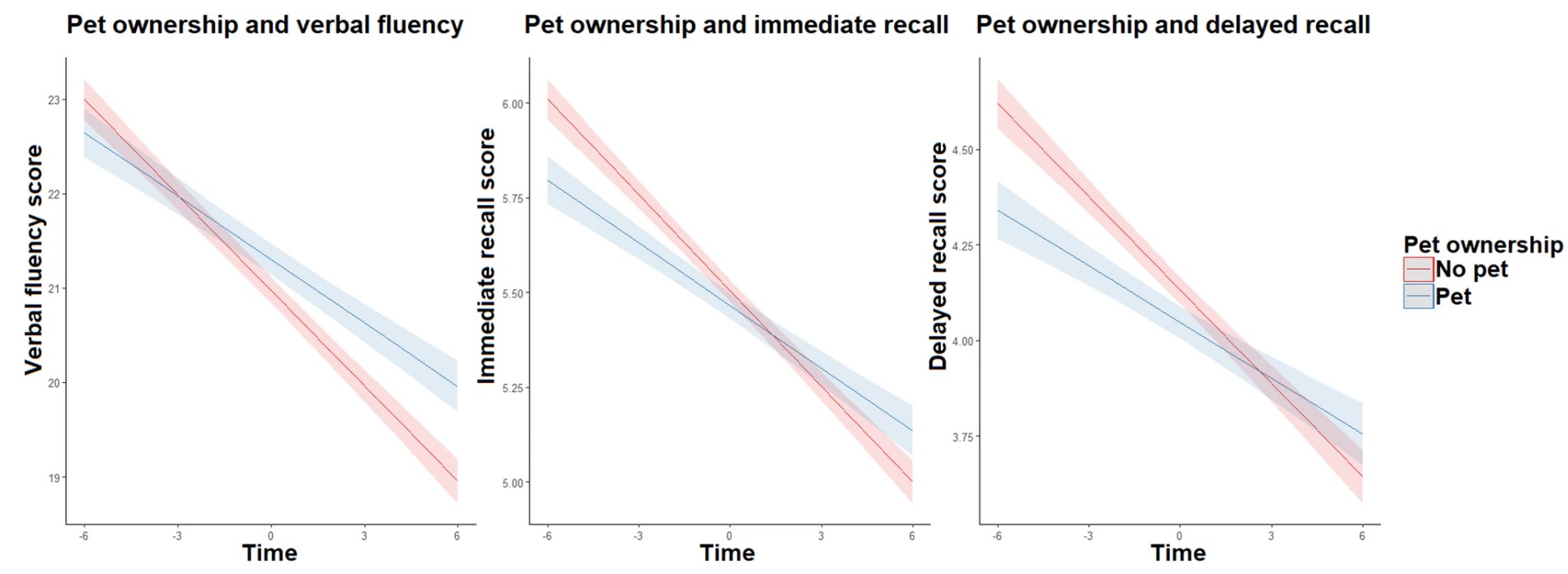The Delightful Way to Protect Your Cognitive Health
You know the drill — protect your cognitive health by eating well, exercising and socializing. But this newfound way to boost brain health is pure pleasure.


Profit and prosper with the best of Kiplinger's advice on investing, taxes, retirement, personal finance and much more. Delivered daily. Enter your email in the box and click Sign Me Up.
You are now subscribed
Your newsletter sign-up was successful
Want to add more newsletters?
For most of us, protecting mental and physical health becomes a top priority as we get older. Still, unfortunately, some of the advice we get about maintaining good health frankly doesn't sound like a whole lot of fun.
Taking steps like cutting back on alcohol, giving up your chips and dips, and taking up exercise are important, but not necessarily moves everyone feels excited about making. That's why it's so nice when a study reveals that something very pleasant can have a positive impact on your health as you move into your later years.
One recent study published in Scientific Reports offered just this type of great news, as the research revealed that one of life's greatest sources of happiness and joy can also make a notable impact on your mental acuity as you grow older. Here's what the study revealed.
From just $107.88 $24.99 for Kiplinger Personal Finance
Become a smarter, better informed investor. Subscribe from just $107.88 $24.99, plus get up to 4 Special Issues

Sign up for Kiplinger’s Free Newsletters
Profit and prosper with the best of expert advice on investing, taxes, retirement, personal finance and more - straight to your e-mail.
Profit and prosper with the best of expert advice - straight to your e-mail.
Adding a furry friend to your family could protect your cognitive health

When it comes to life's greatest pleasures, puppy kisses are well known to be right up there with ice cream on a hot day or a leisurely walk on a beautiful beach. Now, research from Scientific Reports has confirmed what past studies have shown, and what any pet owner knows intuitively — animal companions can improve health, especially as we age.
Extensive past research has shown that pets increase happiness, improve mental health, and increase your tendency to exercise, among other benefits. Pet ownership has also previously been linked to a reduction in cognitive decline in late adulthood.
The new study built upon this past data, taking a closer look at how owning a pet affects specific areas of mental decline and delving into the types of pets that make an impact.
The data was clear: The owners of certain types of pets experienced slower cognitive decline across three specific areas:
- Verbal fluency
- Immediate recall
- Delayed recall
While pet owners started at higher baseline levels of verbal fluency, but lower baseline levels of immediate and delayed recall, the decline of all of these abilities was significantly slower than among non-pet owners.
This was true among people of all age groups, and, for the cat lovers out there, the data also showed that cats had the same positive effects as canine companions. The table below shows just how substantial the impact of having a cat or dog can be:

While the effects of having a pet on cognitive decline differed based on species — dog owners fared best on immediate and delayed recall, while cat owners specifically experienced slower declines in delayed recall and verbal fluency — both groups benefited substantially from the companion animals they welcomed into their homes.
Not all species make a positive impact on cognition

While both cat and dog lovers can rejoice at these results, which thankfully don't add fodder to the dog vs. cat person debate, not every pet owner gets the benefits of reduced cognitive decline, despite the fact that animal ownership in general tends to have positive health effects.
Researchers found that fish and bird ownership did not have a significant effect on cognitive health, despite the fact that past studies have shown that these less conventional animal companions can improve mood, nutritional intake, and stress levels.
There are several potential reasons for this, including the fact that much of the prior research showing the benefits of birds and fish typically had small sample sizes.
The relatively short lifespan of fish and (some) birds could also limit the emotional connections between owners and animals, and when birds are noisy and interfere with sleep, this can have negative effects on cognitive health due to the importance of a good night's rest.
Dogs, and to some extent cats, may also play a bigger role in shaping our lives than fish and birds, as these two species are often better equipped to act as part of an owner's social network, and to encourage owners to go into the community, make broader social connections, and engage in exercise.

Researchers were clear: "The overall effect of pet ownership on cognitive decline may be driven primarily by cat and dog ownership, rather than pet ownership in general, and therefore the specific pet species an individual owns influences its possible relationship with changes in cognition."
So, if you want to maintain your cognitive health, adding a dog — or a cat — to your household could be the way to go. With millions of dogs and cats in shelters awaiting homes, your efforts to improve your mental health could also save a life — which would be a very big win/win.
Read More
Profit and prosper with the best of Kiplinger's advice on investing, taxes, retirement, personal finance and much more. Delivered daily. Enter your email in the box and click Sign Me Up.

Christy Bieber is an experienced personal finance and legal writer who has been writing since 2008. She has been published by Forbes, CNN, WSJ Buyside, Motley Fool, and many other online sites. She has a JD from UCLA and a degree in English, Media, and Communications from the University of Rochester.
-
 3 Smart Ways to Spend Your Retirement Tax Refund
3 Smart Ways to Spend Your Retirement Tax RefundRetirement Taxes With the new "senior bonus" hitting bank accounts this tax season, your retirement refund may be higher than usual. Here's how to reinvest those funds for a financially efficient 2026.
-
 5 Retirement Tax Traps to Watch in 2026
5 Retirement Tax Traps to Watch in 2026Retirement Even in retirement, some income sources can unexpectedly raise your federal and state tax bills. Here's how to avoid costly surprises.
-
 Trump's New Retirement Plan: What You Need to Know
Trump's New Retirement Plan: What You Need to KnowPresident Trump's State of the Union address touched upon several topics, including a new retirement plan for Americans. Here's how it might work.
-
 3 Smart Ways to Spend Your Retirement Tax Refund
3 Smart Ways to Spend Your Retirement Tax RefundRetirement Taxes With the new "senior bonus" hitting bank accounts this tax season, your retirement refund may be higher than usual. Here's how to reinvest those funds for a financially efficient 2026.
-
 Trump's New Retirement Plan: What You Need to Know
Trump's New Retirement Plan: What You Need to KnowPresident Trump's State of the Union address touched upon several topics, including a new retirement plan for Americans. Here's how it might work.
-
 Buy and Hold … or Buy and Hope? It's Time for a Better Retirement Planning Strategy
Buy and Hold … or Buy and Hope? It's Time for a Better Retirement Planning StrategyOnce you're retired, your focus should shift from maximum growth to strategic preservation and purposeful planning to help safeguard your wealth.
-
 Your Legacy Is More Than Your Money: How to Plan for Values, Not Just Valuables
Your Legacy Is More Than Your Money: How to Plan for Values, Not Just ValuablesLegacy planning integrates your values and stories with legal and tax strategies to ensure your influence benefits loved ones and good causes after you're gone.
-
 4 High-End Experiences Worth the Splurge After 50
4 High-End Experiences Worth the Splurge After 50These curated date ideas provide the perfect backdrop for couples ready to enjoy the very best that the world has to offer.
-
 My Grandkids Want Me to Donate to Their Teams and School Fundraisers. I Adore Them, but I'm on a Budget.
My Grandkids Want Me to Donate to Their Teams and School Fundraisers. I Adore Them, but I'm on a Budget.When your heart says "yes" but your wallet says "no," there is still a way forward. Here's what financial pros say.
-
 Your Retirement Age Is Just a Number: Today's Retirement Goal Is 'Work Optional'
Your Retirement Age Is Just a Number: Today's Retirement Goal Is 'Work Optional'Becoming "work optional" is about control — of your time, your choices and your future. This seven-step guide from a financial planner can help you get there.
-
 It's Time to Bust These 3 Long-Term Care Myths (and Face Some Uncomfortable Truths)
It's Time to Bust These 3 Long-Term Care Myths (and Face Some Uncomfortable Truths)None of us wants to think we'll need long-term care when we get older, but the odds are roughly even that we will. Which is all the more reason to understand the realities of LTC and how to pay for it.